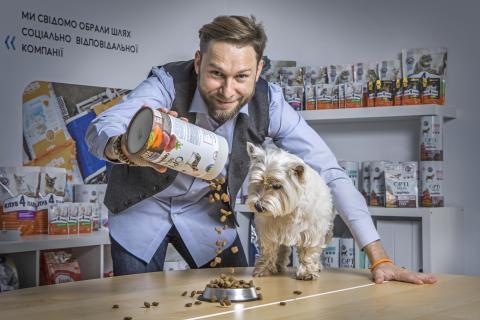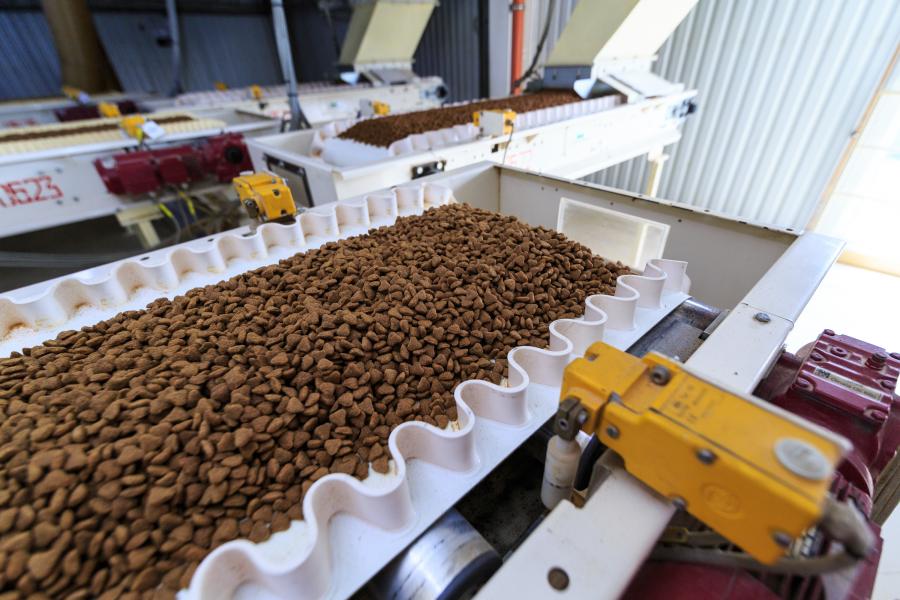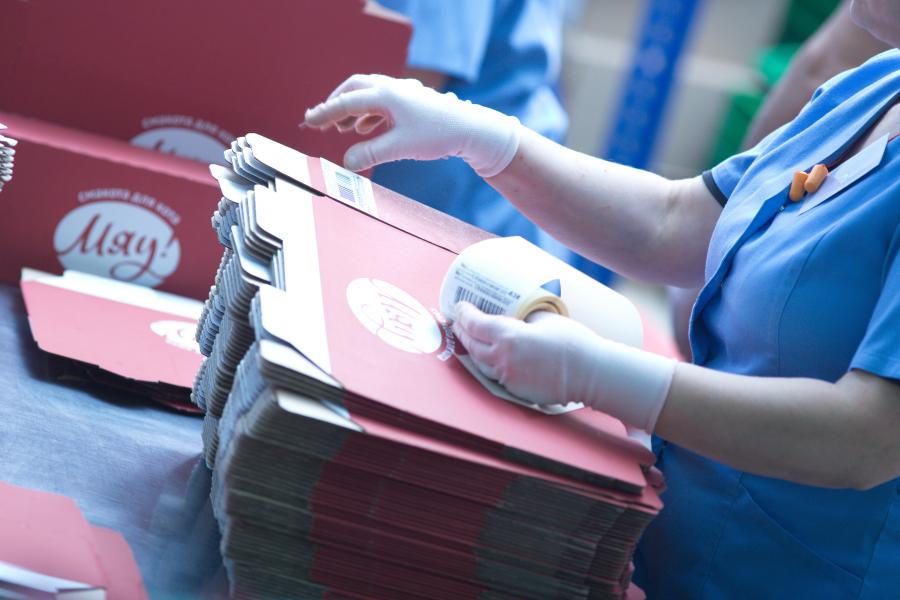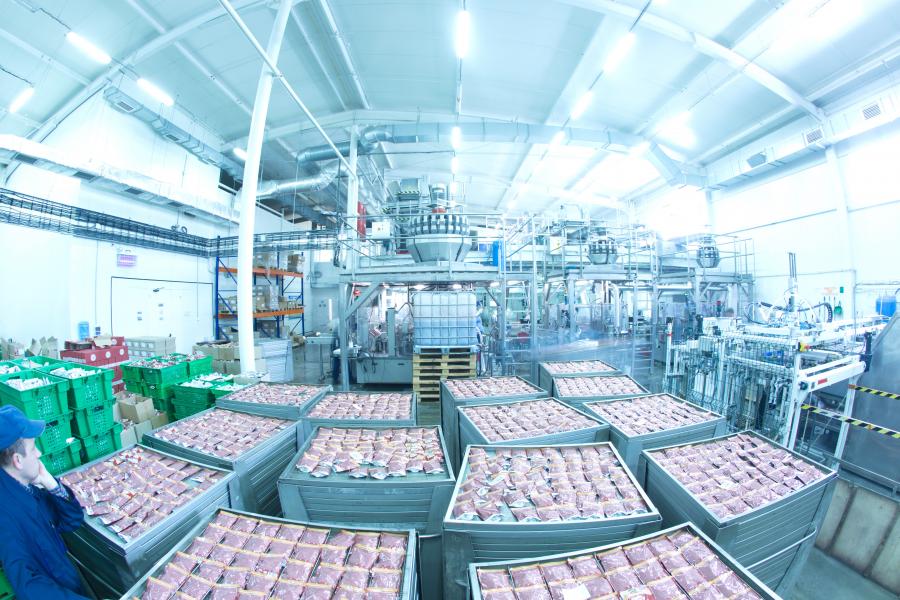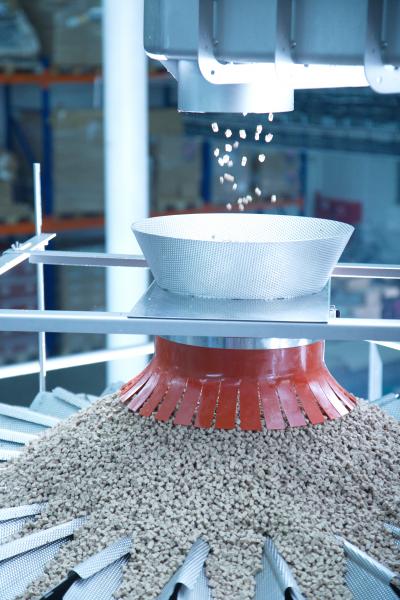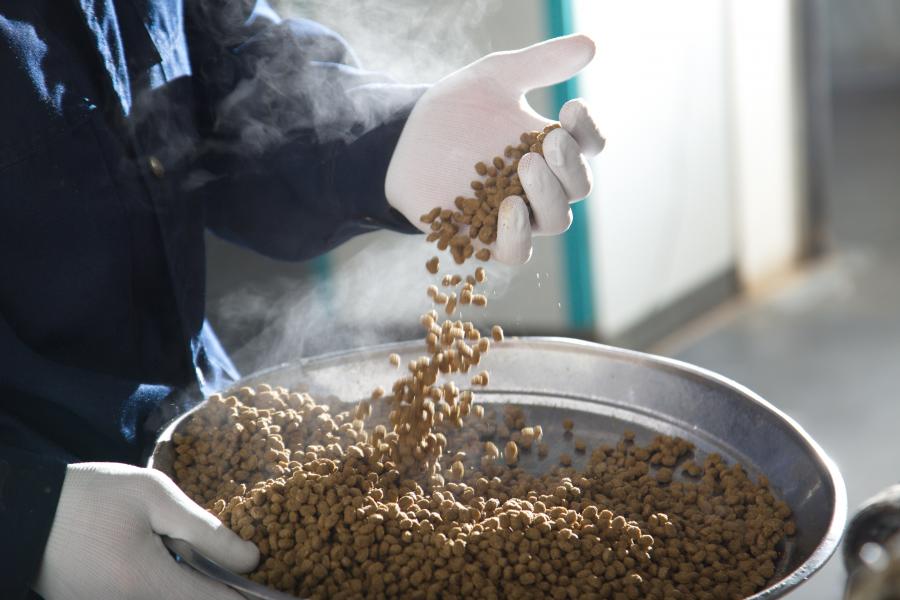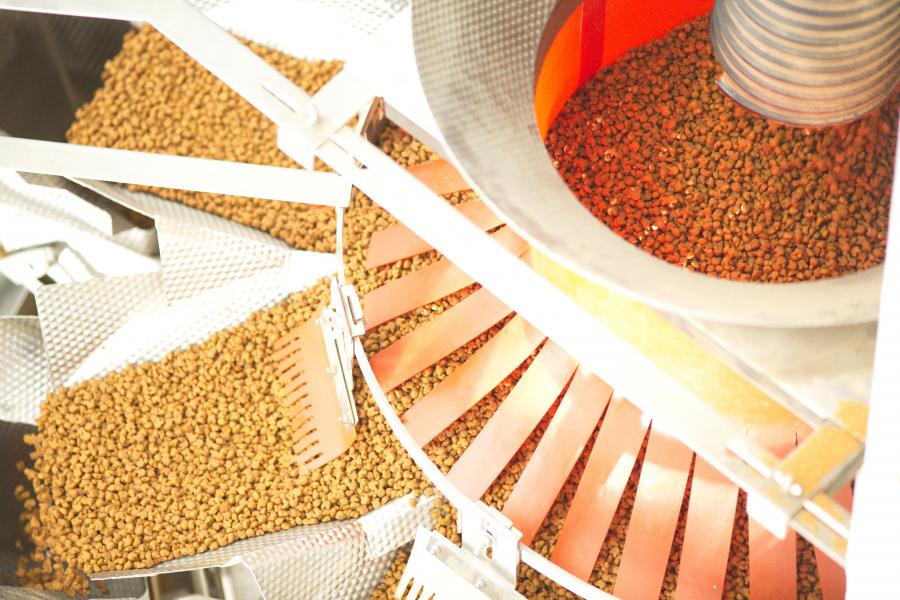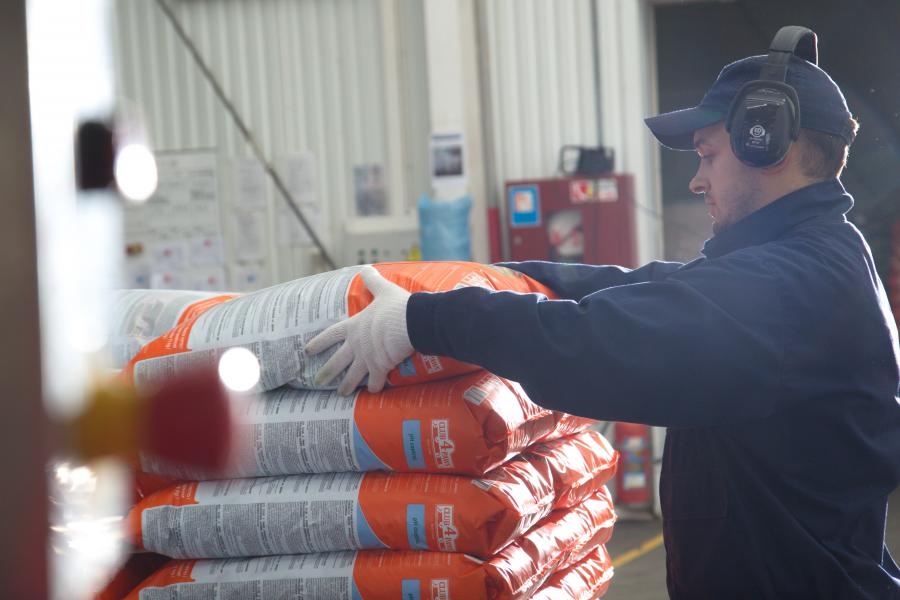A Ukrainian company from Lviv has become a leader in the domestic market and established export sales to more than 20 countries. The EBRD’s business advisory programme, with support from the EU4Business initiative, has helped it to become more sustainable.
Angel the Bobtail, Martin the Yorkshire Terrier and Berry the Beagle were the new unusual employees coming to work at the head office of the Ukrainian company Kormotech on July 6. Alongside dozens of other large and small businesses across Ukraine, the company was joining in the "Take your dog to work" day.
This is like a professional holiday for Kormotech, the largest producer and seller of food for cats and dogs in Ukraine, with a market share of about 36%. The annual kindness event began in Ukraine six years ago at the company’s initiative and with its active promotion. In 2018, the event was a particular success, with employees of more than 250 companies in 53 cities of Ukraine taking their pets to work.
"Love for animals is the main value of Kormotech," says Rostyslav Vovk, co-owner of the company, while trying to keep his very active West Highland White Terrier in his hands. The pet's name is House, and he came to the office today for our photo session.
For the photo shoot, we ask Rostyslav to fill House’s bowl with food. The entrepreneur opens a pack of Optimeal, a novelty premium dog food developed by his Kormotech. The company's portfolio also contains the Meow, Gav and Club 4 Paws brands, a winning marketing combination that has allowed Kormotech to take a lead over transnational competitors in the Ukrainian market.
The company is now undergoing a new stage, actively entering foreign markets. To become more sustainable, it is optimising its business. The first step in the optimisation was to train the company’s own nutrition specialists, who will develop feed formulas and rations for pets. The second is the introduction of international best practices at the factory. Both of these phases were made possible by Kormotech participating in the EBRD's business advisory programme.
Within the programme’s framework, small and medium-sized enterprises (SMEs) receive consultations from leading international business experts for 18% of the total consultation budget. The rest is covered by funding provided by the European Union (EU) under its EU4Business initiative, and the governments of Sweden and the United States. With that support in place, Kormotech was able to attract nutrition experts and a manufacturing process auditor.
We begin our conversation with Rostyslav Vovk with a discussion of these projects.
Why does Kormotech need consultants? Your company is an accomplished player with a large market share.
Formulas and diets are among the most challenging issues in our business. In 15 years of work we had not been able to find the specialists who would develop diets here in the factory. We outsource these services, but by the end of the year, I hope, we will have employees who can compose and create the formulas themselves.
The nutrition experts’ training programme is managed by a Canadian specialist with over 30 years of experience in this business.
There is also an American consultant who will help us to implement international best practices at the factory. For example, we will be able to increase our capacity without purchasing additional equipment. Or we will have better safety at work.
The buyer of your products is human, but the consumer is a cat or a dog. How do you manage to convince those who do not eat your feed to pay for it?
There is such an indicator as palatability. If the pet eats a certain food well, then the owner buys it. For Ukrainian buyers, it is also important for the food formula to contain meat. We had thought fish would be more popular, but it turned out that there has to be veal, chicken or turkey. All that people like themselves, they want to see in the diet of their pets.
And what do you do to make cats and dogs like your food?
We have a home tasting panel where cats and dogs taste our products. It works like this: several owners of cats and dogs each morning receive a daily ration of the product from us. In the evening, we take away what's left over. And then we calculate the percentage of the eaten food. Thus, in 3 to 4 days it becomes clear if we are winning with some food or taste, or we are losing.
One tasting panel is made up of 20 to 30 animals. And all in all, about 200 cats and 180 dogs take part in the tasting programmes.
Let's talk about the business. Tell us about your most risky step.
The biggest challenge was launching this business as such. We knew nothing about it, and in Ukraine, there was no-one who could help. This was the greatest risk.
But we can see now what it all led to: we have 36% of the Ukrainian market, we export our products to more than 20 countries. And we are constantly expanding the geography of our sales.
Wasn't it risky entering a market that is dominated by two transnational companies? That was the position in Ukraine in 2003 when Kormotech started operations.
If there are two players who share the market 50-50, then there's room for a third one, as long as they are fighting each other. This was our reasoning. Moreover, there were actually 30 brands present on the market then. And there are more than 150 now.
Also, we did not attack our competitors head-on. We undertook something like a guerilla operation. We entered anywhere where we managed to negotiate with the owners. With those who were not happy about their cooperation with the competitors. And these were not only small market stalls, but also pet stores. That was because working with a large player did not always suit smaller retailers.
That is the way we are working now in the EU.
Nevertheless, your sales began growing strongly in 2008, when you entered the Metro chain. How did you manage this?
This was a great opportunity for us. For several years, Kormotech could not enter the supermarkets, because the pet food shelves of all the large chains had been already divided up between our competitors.
However, in 2008, the fashion for supermarket own brands hit Ukraine. We came to Metro, which had its own Aro brand and offered to produce pet food for them. Then we won their tender and asked to allocate 5% of the shelf space for our brands. They agreed.
Only six months later we were able to persuade them that we could deliver the required quantities and guarantee stable quality. This is a critical parameter in pet food. And we invested in our own brands in parallel.
Now, Meow, Gav, Club 4 Paws and Optimeal occupy about 30% of the sections at the supermarkets where we are present. And Kormotech is already present not only in that chain, but also in others, where we entered by producing under their own brands.
That is also the way we operate in the EU, we have entered supermarket chains in France, Latvia, and Lithuania. We also have a contract with a chain in Chile.
Share with us the secrets of the successful entry into foreign markets. What should an entrepreneur do to succeed?
The most important thing is to put quality first. From the very beginning we built our business on this basis. Everything was done according to specifications and standards developed in the USA or on the European export market. In Ukraine, they simply did not exist and even now there are none.
Also, I would advise entrepreneurs to be prepared to attend international fairs and not be afraid to exhibit. Stop feeling insignificant. We have been going since 2012, and we try not to miss any European fairs. Be prepared that you will not sign any contracts immediately. We are now reaping the rewards of the talks that we started 6 years ago.
Our strategy is to get into the global top 50 in the pet food and pet care products. So, our domestic market will not be enough to achieve this goal. Ukraine accounts for about 80% of our sales, and our forecast calculations show that Ukraine will make for about 50% in our sales in 2022-2023. This needs to happen, of course, not through falling sales in the domestic market, but through increasing exports. Kormotech will grow stronger in foreign markets.
Author: Katerina Shapoval
The article was prepared for the EU4Business initiative.

